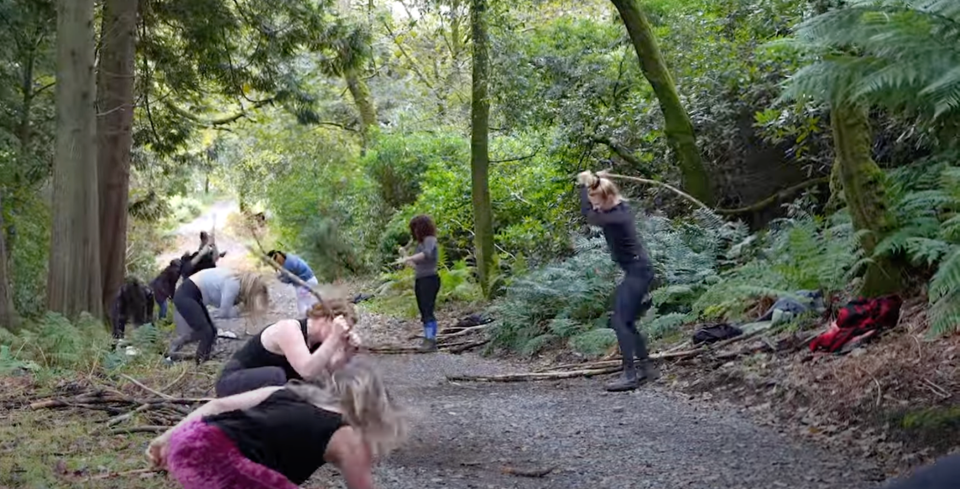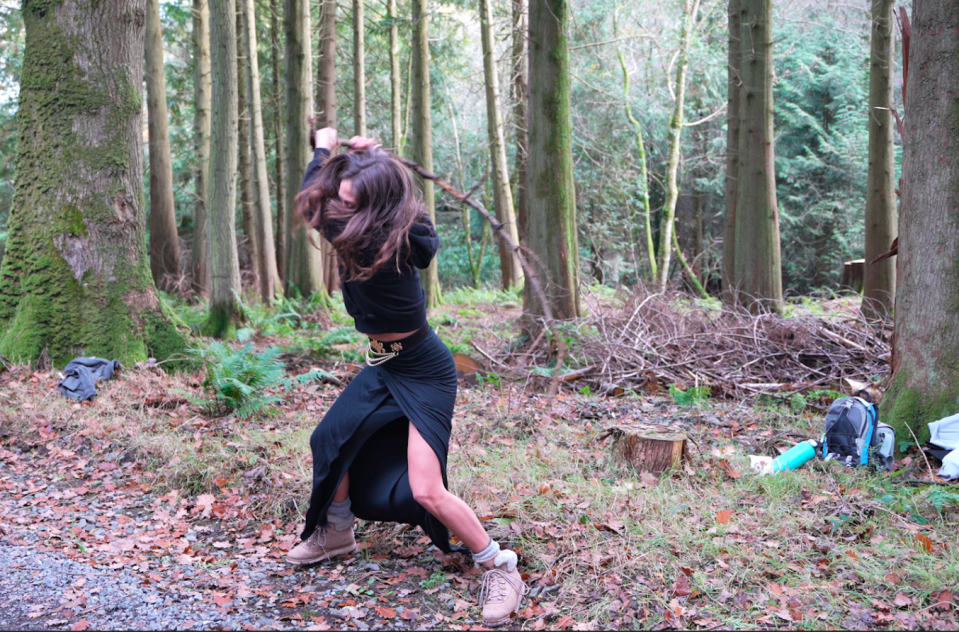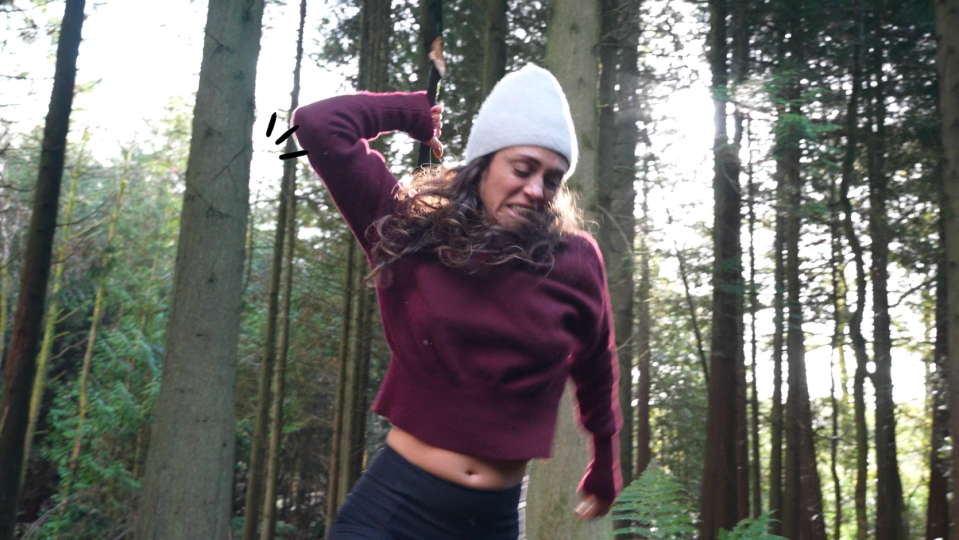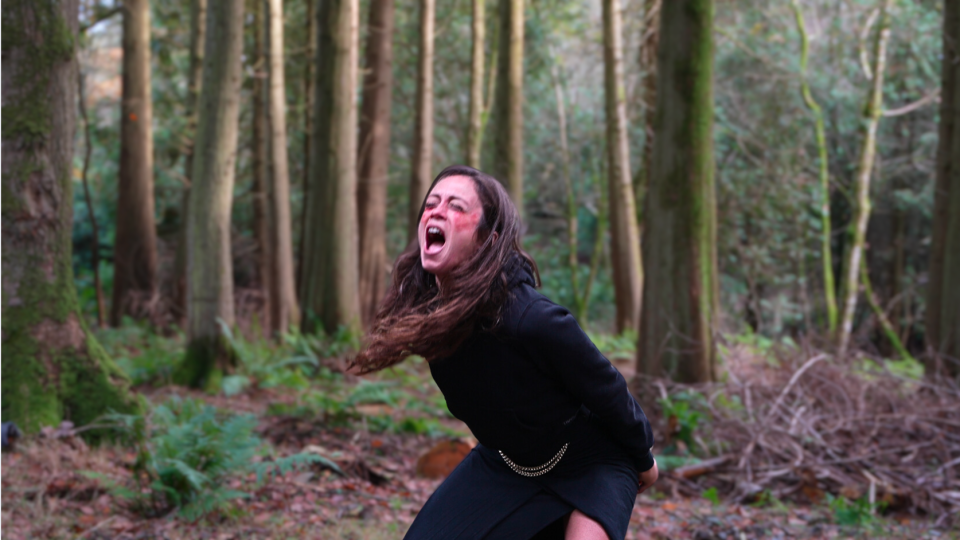Women are paying big money to scream, smash sticks in the woods. It's called a rage ritual.
Kimberly Helmus still gets chills thinking about her first rage ritual.
Two-and-a-half years ago after her divorce, the cybersecurity engineer embarked on a retreat to Scotland with Mia Banducci − an author and self-described "Spiritual Fairy Godmother," better known online as Mia Magik.
As part of the retreat, Banducci held a rage ritual: a ceremony in which participants scream and beat large sticks on the ground in the woods. Participants are encouraged to think of people and experiences that have wronged them and to scream and swing the sticks for at least 20 minutes, or until they can no longer move their arms.
Rage rituals have garnered attention on TikTok, where they've resonated, particularly with women. In comments, women describe how moving it is to see other women embody their anger − an emotion experts say society often discourages women from expressing.
"There's no place where you can see women be able to be angry like that and it not be condemned," Helmus says. " 'She's just hormonal. She's just unhinged. She's just crazy. She's just on her period. She's just, whatever.' This was a place where you were, probably for the first time in a really, really long time, if ever, able to scream out loud things about how you felt."

What is a rage ritual?
Banducci has led rage rituals for several years and began doing them first for herself, then for friends, and eventually, as part of her dayslong retreats, which include other activities and can range in price from around $2,000 to $4,000. Her one-day version, she says, costs $222 per ticket.
The process of a rage ritual is pretty simple. First, Banducci says, participants gather large sticks while conjuring to mind "every person who's ever crossed you, who's ever hurt you, who's ever ignored your boundaries or taken advantage of you or abused you in any way." After some warm-up breaths, the screaming and swinging begin. The ritual is held in the woods so participants can make noise without fear of bothering people nearby.
Banducci isn't the only person who leads events dealing with rage. Secret Sanctuary will host a "Sacred Rage Ceremony" in Alberta, Canada, in July, and Jessica Ricchetti − an author and self-proclaimed mystic − will host a "Sacred Rage" women's retreat in North Carolina in June.
"When people do this and give themselves permission to release their anger, their capacity for joy actually expands," Banducci says. "They're able to feel more happiness and pleasure, and they go home to their families with more gratitude and ease and peace."

Unexpected feelings can also arise during a rage ritual.
Helmus, for instance, thought her first rage ritual would address the anger she felt toward her ex-husband. Instead, she felt something much deeper: a grief she'd been holding onto since witnessing the death of a friend when she was 15.
"I remember it was a very kind of clear, light-switch moment where I was like, 'Oh, that's what this is about,' " she says. "So many times I think you can't really feel a lot of stuff until you work through it."
What do rage rooms have to do with sex? A whole lot, it turns out.
What does a therapist think of rage rituals?
Psychotherapist Stephanie Sarkis says people deal with anger in a variety of ways, and there isn't a once-size-fits-all solution to rage.
For some, rage is better handled with activating strategies, like hitting a punching bag or doing an intense workout. For others, soothing strategies, like deep breaths, slow walks, or calm music, work better.
It's important to know how you best process anger before undergoing a rage ritual, Sarkis says.
"When you do something like that, it's important to know, does it exacerbate your anger or does it decrease it?" she says. "That's something that's on an individual basis. It depends on past experiences. It depends on your own make-up. It depends on just brain chemistry."
Still, Sarkis isn't against rage rituals. If they help you release anger, you can afford them and they're done safely, she doesn't see the harm.
"I'm for whatever works within someone's worldview, whatever works within their budget, whatever works within their own well-being and their own safety," she says. "We're very individual."

Why do rage rituals resonate with women in particular?
Rage rituals seem to have struck a chord, particularly among women, who write in social media comments how moving it is to see women let out their anger.
"Why did I have an immediate visceral reaction and start crying?" one woman wrote. "I literally cried seeing this… I NEED this," another wrote. "As a now middle aged woman with even more rage, I need this!!" wrote another.
Sarkis says this isn't surprising. After all, women have been historically discouraged from embracing their right to feel angry, she says.

Banducci says that, while men are taught to suppress sadness, women are taught to suppress rage.
"It's like, 'Don't be a bitch' or 'don't be angry' or 'don't be aggressive' or 'don't stand up for yourself.' 'Don't protect your integrity.' 'Don't tell anyone that they don't have consent to touch your body or speak to you in a certain way,' " she says. "There are particular emotions that are accepted in the gender binary that we each need to feel. Men need to cry − and it's so healthy for men to cry − and women need to be able to get angry."
Justin Bieber broke down crying: Men should pay attention.
By the end of her first rage ritual, Helmus says, participants were covered in dirt and mud with bruises and cuts on their hands. Sticks were broken everywhere.
She says she got a lot from the experience and has done it twice since: "It's really a place where you can be this feral, wild woman and not be looked at, other than with love and acceptance and care."
This article originally appeared on USA TODAY: Rage rituals have women screaming, smashing sticks in the woods: Watch


